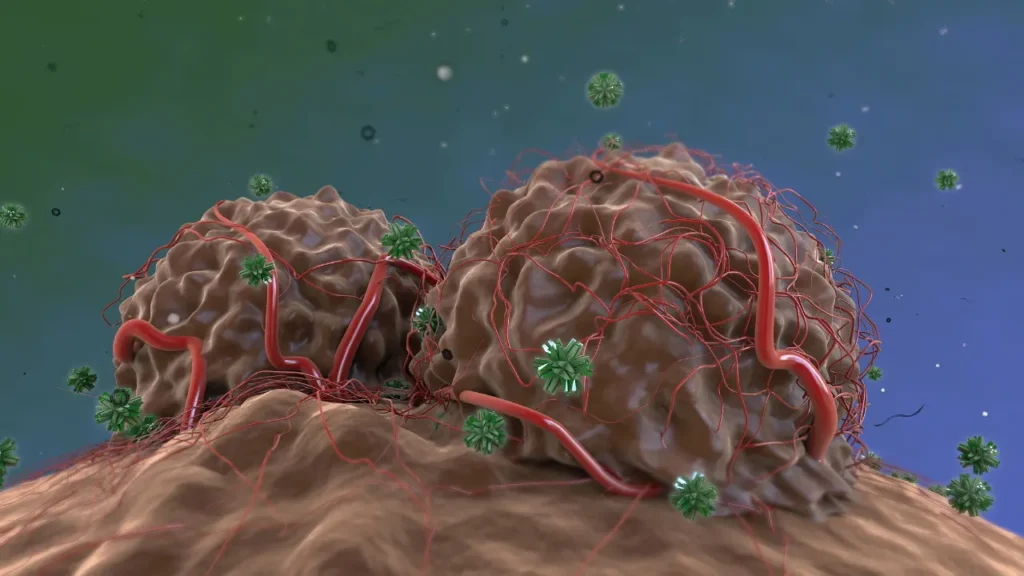Black Hellebore is the perennial blooming plant known as Helleborus niger. It is commonly referred to as Christmas rose or winter rose and is a member of the Ranunculaceae family. The plant is indigenous to the hilly regions of Europe, including the Balkan Peninsula, Italy, and Switzerland. Although Black Hellebore is well known for its beautiful flowers, which bloom in the winter, its use as a nutritional supplement and herbal remedy has grown recently. The goal of this article is to present a thorough analysis of the chemistry, health advantages, recommended dosage, negative effects, possible drug interactions, and appropriate usage of Black Hellebore as a nutritional supplement.
You May Also Like:
Wormwood: Benefits, Dosage, Side Effects, Drug Interactions, and Other Important Information
Black Mustard: Benefits, Dosage, Side Effects, Drug Interactions, and Other Important Information
Black Hellebore: Benefits, Dosage, Side Effects, Drug Interactions, And Other Important Information is an original (NootropicsPlanet) article.
Nature of Black Hellebore
Black Hellebore is a perennial herbaceous plant and can reach heights of 30 to 45 cm. It has huge white or pinkish flowers that bloom from late winter to early spring, along with dark green, leathery, and serrated leaves. The name “Black” Hellebore comes from the thick, meaty, and distinctively black roots of the plant.
Since ancient Greece, when it was employed as a purgative, emetic, and heart stimulant, Black Hellebore has been utilized for medical purposes. The herb was also employed in conventional medicine to treat a variety of illnesses, including infections, gout, and rheumatoid arthritis.
Health Benefits of Black Hellebore
- Anti-inflammatory Effects: Rheumatism, gout, and arthritis are just a few of the inflammatory illnesses that Black Hellebore has traditionally been used to treat. The inclusion of steroidal saponins and flavonoids, give it anti-inflammatory qualities. These substances regulate the generation of pro-inflammatory mediators and block the activity of enzymes involved in the inflammatory process. Additionally, these substances have antioxidant properties that reduce oxidative stress and inflammation.
- Black Hellebore has antibacterial properties that fight against a variety of diseases, including bacteria, fungi, and viruses. The main cause of these antimicrobial effects is saponins, which can damage the microbial cell membrane’s integrity and cause cell death.
- Anti-tumor Activity: According to recent research, the steroidal saponins found in Black Hellebore have potent anti-tumor properties. These substances decrease cell proliferation and trigger apoptosis (programmed cell death) in a variety of cancer cell lines, including those from the breast, lung, and prostate.
- Effects on the Heart: The glycosides found in Black Hellebore, particularly helleborin, have beneficial inotropic effects on the heart, enhancing the force and effectiveness of cardiac contractions. This can be helpful when the heart’s ability to pump blood is impaired by congestive heart failure.

Chemistry of Black Hellebore
Steroid saponins, flavonoids, and glycosides are the main bioactive components of Black Hellebore, and they are principally what give it its pharmacological characteristics. The most significant active elements of Black Hellebore are the steroidal saponins, a group of complex glycosides. Numerous biological activities, such as anti-inflammatory, anti-tumor, and immunomodulatory effects, are due to these substances. Black Hellebore contains steroidal saponins like hellebrin, helleborein, and helleborogenin.
Another class of phytochemicals contained in Black Hellebore is flavonoids, which are well known for their anti-inflammatory, anti-cancer, and antioxidant activities. In Black Hellebore, flavonoids such as apigenin, luteolin, and kaempferol are frequently found.
Black Hellebore also contains glycosides like helleborin. These substances give the plant its distinctive bitter flavor and have a number of pharmacological actions, including stimulatory effects on the heart and central nervous system (CNS).
Physiological Mechanisms of Action
The bioactive components of Black Hellebore are primarily responsible for the plant’s diverse modes of action, which are how it produces its pharmacological effects.
- Anti-inflammatory actions: Black Hellebore’s steroidal saponins and flavonoids have anti-inflammatory actions by preventing the formation of pro-inflammatory mediators such prostaglandins, cytokines, and leukotrienes. Inflammation is also decreased by these substances’ ability to stop the activity of inflammatory enzymes including cyclooxygenase and lipoxygenase.
- Antimicrobial Activity: The Black Hellebore’s saponins have the ability to kill microorganisms by compromising the integrity of their cell membranes. By preventing several pathogens, including bacteria, fungi, and viruses, from growing and replicating, flavonoids also have antibacterial properties.
- Anti-tumor Activity: In numerous cancer cell lines, including those from breast, lung, and prostate cancers, the steroidal saponins found in Black Hellebore induce apoptosis (programmed cell death) and limit cell proliferation.
- Cardiac Effects: Black Hellebore contains glycosides that have beneficial inotropic effects on the heart. They enhance the force and effectiveness of cardiac contractions. Helleborin is one such glycoside.
- CNS Effects: The Black Hellebore’s glycosides also have CNS stimulatory effects by raising the brain’s release of neurotransmitters including norepinephrine and dopamine. These stimulatory effects may result in an improvement in cognitive function, mental clarity, and attentiveness.
- Antioxidant Effects: By scavenging free radicals and lowering oxidative stress, the flavonoids found in Black Hellebore display antioxidant qualities. This can aid in the prevention of numerous illnesses, including cancer, cardiovascular conditions, and neurological illnesses.

Optimal Dosage of Black Hellebore
The ideal dose of Black Hellebore varies on various variables, including your age, weight, health, and intended medicinal application. Black Hellebore should only be used under the guidance of a licensed healthcare professional due to its potential toxicity.
Adults usually take 50-100mg of Black Hellebore each day, divided into two doses. The dosage, however, can change based on your health status and the intended therapeutic purpose. Avoid using higher doses because they can be harmful.
Side Effects of Black Hellebore
When used as directed, Black Hellebore is generally regarded as safe. However, it can have negative effects in some people, particularly if used in large doses or for an extended period of time.
Constipation, nausea, vomiting, and diarrhea are a few of the negative effects of Black Hellebore. Convulsions, vertigo, and heart arrhythmias are other possible, serious, side effects. The presence of cardiac glycosides, which can result in heart toxicity and even death in extreme circumstances, is chiefly responsible for the plant’s harmful effects.
Due to its possible toxicity, Black Hellebore should be used with caution in children, those readers who have a history of cardiac disease, and readers who are pregnant or nursing.

Potential Substance Interactions
There may be negative interactions between Black Hellebore and several drugs and substances. Black Hellebore may interact with a variety of drugs, including:
- Cardiac Glycosides: The effects of other cardiac glycosides, such as digoxin, can be amplified by the cardiac glycosides found in Black Hellebore. This may raise the danger of toxicity in the heart.
- Anticoagulants: When used concurrently with anticoagulant drugs like warfarin, Black Hellebore may raise the risk of uncontrollable or excess bleeding.
- Diuretics: When used concurrently with diuretic drugs like furosemide, Black Hellebore may raise the risk of electrolyte abnormalities.
- CNS Stimulants: The effects of CNS stimulants like coffee and ephedrine may be amplified by Black Hellebore. An increased chance of adverse consequences can result from this, including anxiety and insomnia.
Responsible Uses of Black Hellebore
You should only use Black Hellebore under the supervision of a licensed healthcare professional. Please pay close attention to the sections on dosage, side effects, and substance interactions for further information.
Black Hellebore:
Conclusion
Black Hellebore is a flower that is as beautiful as it is potentially toxic. Please be careful when consuming for medicinal properties. This is a plant whose effects on health can be powerful and dramatic. This is not a plant to be consumed for minor health issues. This plant can counter the effects of some significant ailments. Overall, the bioactive components of Black Hellebore are primarily responsible for the pharmacological effects that it manifests through a variety of routes of action. To understand the benefits of Black Hellebore as a dietary supplement fully and herbal treatment, more research is needed.

References:
- “Black Hellebore.” Retrieved from: https://www.webmd.com/vitamins/ai/ingredientmono-99/black-hellebore
- “Pharmacognostical and Phytochemical Studies of Helleborus niger L.” Retrieved from: https://www.ncbi.nlm.nih.gov/pmc/articles/PMC5566826/
- “Helleborus niger.” Retrieved from:https://plants.ces.ncsu.edu/plants/helleborus-niger/.
Important Note: The information contained in this article is for general informational purposes only, and should not be construed as health or medical advice, nor is it intended to diagnose, prevent, treat, or cure any disease or health condition. Before embarking on any diet, fitness regimen, or program of nutritional supplementation, it is advisable to consult your healthcare professional in order to determine its safety and probable efficacy in terms of your individual state of health.
Regarding Nutritional Supplements Or Other Non-Prescription Health Products: If any nutritional supplements or other non-prescription health products are mentioned in the foregoing article, any claims or statements made about them have not been evaluated by the U.S. Food and Drug Administration, and such nutritional supplements or other health products are not intended to diagnose, treat, cure, or prevent any disease.


